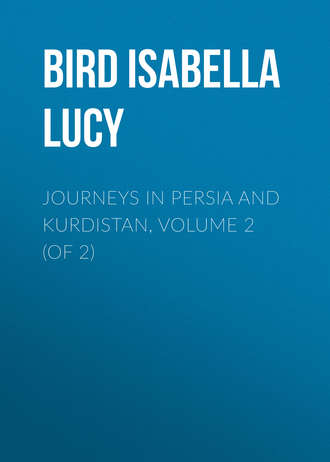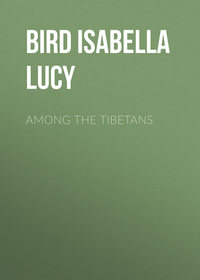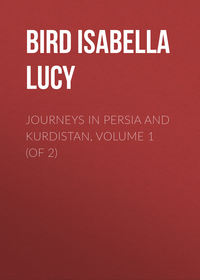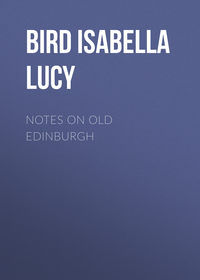 полная версия
полная версияJourneys in Persia and Kurdistan, Volume 2 (of 2)
"2d. Cut not off our hope, shut not Thy door against our faces, and cease not Thy care over us. O God, according to our worthiness reward us not. Thou alone knowest our weakness.
"1st. Scatter, O Lord, in the world love, peace, and unity. Raise up righteous kings, priests, and judges. Give peace to the nations, heal the sick, keep the whole, and forgive the sins of all men.
"2d. In the way that we are going may Thy Grace keep us, O Lord, as it kept the child David from Saul. Give us Thy mercy as we are pressing on, that we may attain to peace according to Thy will. The Grace which kept the prophet Moses in the sea, and Daniel in the pit, and by which the companions of Ananias were kept in the fire, by that Grace deliver us from evil.
"Whole choir.– In the morning we all arise, we all worship the Father, we praise the Son, we acknowledge the Holy Spirit. The grace of the Father, the mercy of the Son, and the hovering of the Holy Spirit, the Third Person, be our help every day. Our help is in Thee. In Thee, our true Physician, is our hope. Put the medicine of Thy mercy on our wounds, and bind up our bruises that we be not lost. Without Thy help we are powerless to keep Thy commandments. O Christ, who helpest those who fulfil Thy will, keep Thy worshippers. We ask with sighing, we beseech Thy mercy, we ask forgiveness from that merciful One who opens His door to all who turn unto Him. Every day I promise Thee that to-morrow I will repent: all my days are past and gone, my faults still remain. O Christ, have mercy upon me, have mercy upon me."
42
About Christmas 1890 in Constantinople I had an opportunity of laying the state of the Gawar Christians and the reduction of the garrison of Diza before His Highness Kiamil Pasha, then Grand Vizier. He appeared deeply interested, and said that it was the purpose of his Government to send troops up to the region as soon as the roads were open. Since then I have heard nothing of these people, but to-day, as this sheet is going to press, I have received the following news from Dr. Shedd of Urmi: "You will be glad to know that Gawar is very much changed for the better. The Turkish Governor has been removed, and another of far better character and ability has the post. The Kurdish robbers have been arrested, and their leader, Abdurrahman Bey, killed." —November 2, 1890.
43
The complaints to which I became a listener were made by maleks, bishops, priests, headmen, and others. Exaggerations prevail, and the same story is often told with as many variations as there are narrators. I cannot vouch for anything which did not come under my own observation. Some narratives dissolved under investigation, leaving a mere nucleus of fact. Those which I thought worthy of being noted down – some of which were published in the Contemporary Review in May and June in two papers called The Shadow of the Kurd– were either fortified by corroborative circumstances, or rest on the concurrent testimony as to the main facts of three independent narrators.
In some cases I was asked to lay the statements before the British Consul at Erzerum, with the names of the narrators as the authority on which they rested, but in the greater number I was implored not to give names or places, or any means of identification. "We are in fear of our lives if we tell the truth," they urged. Sometimes I asked them if they would abide by what they told me in the event of an investigation by the British Vice-Consul at Van. "No, no, no, we dare not!" was the usual reply. Under these circumstances, the only course open to me is to withhold the names of persons and places wherever I was pledged to do so, but as a guarantee of good faith I have placed the statements, confidentially, with the names, in the hands of Her Majesty's Principal Secretary of State for Foreign Affairs.
44
For the correction of my very imperfect investigations into the religious customs of the Syrians, I am indebted to a very careful and learned paper by Canon Maclean, Some Account of the Customs of the Eastern Syrian Churches, originally published in the Guardian, and now to be obtained at the office of "The Archbishop of Canterbury's Mission to the Assyrian Christians, 2 Deans Yard, Westminster."
45
A singular legend is told regarding the origin of the sacred leaven and the sacred oil.
The Syrians say that as our Lord went up out of the Jordan after His baptism John the Baptist collected in a phial the baptismal water as it dropped from His sacred person, giving it before his death to St. John the Evangelist. At the Last Supper (the legend runs) our Lord gave to John two loaves, putting it into his heart to preserve one. At the Cross, when this same apostle saw the "blood and water," he took the phial from his bosom and added the water from the pierced side to the water of baptism, dipping the loaf at the same time in the blood. After the Day of Pentecost the disciples, before going forth to "disciple" the nations, ground John's blood-dyed loaf to powder, mixed it with flour and salt, divided it among themselves, and carried it forth to serve as leaven for ever for the bread of remembrance. In like manner they took of the mingled water of the phial, and mixing it with oil of unction, divided it, and preserved it for the perpetual sanctification of the waters of baptism.
46
A portion of one of the latter follows: —
The newly dead.– "Hail, my brethren and friends who sleep. Open the door that I may enter in and see your ranks."
Those in Hades.– "Come, enter and see how many giants are sleeping here, and have been made dust and rust and worms in the bosom of Sheol. Come, enter and see, O child of death, the race of Adam: see and gaze where thy kind dwells. Come, enter and see the abundance of the bones and their commingling. The bone of the king and the bone of the servant are not separated. Come, enter and see the great corruption we are dwelling in."
The mourners.– "Wait for the Lord, who will come and raise you by His right hand."
Translations of the Liturgies are to be found in Dr. Badger's valuable book, The Nestorians and their Rituals.
47
In the winter of 1887 and the spring of 1888 every effort was made by Fikri Pasha, the Turkish Governor of this district, but a Kurd by race, to dislodge Mr. Browne from his position in the mountains. "Soldiers were continually sent to inquire into his plans; he was accused of practising without a diploma as a medical man, because he gave a few simple remedies to the natives in a country destitute of physicians, and his position became well-nigh intolerable when he found that his host, Mar Shimun, was being insulted and punished for harbouring him, and that the native Christians were being made to suffer for his residence among them. The Patriarch, however, stood firm. 'Your presence here,' said he to Mr. Browne, 'may save us from a massacre; and as for these troubles we must put up with them as best we can.' These words were verified a few months afterwards." – Mr. Athelstan Riley's Report on the Archbishop of Canterbury's Mission to the Assyrian Christians, 1888.
48
Translation of a letter given to the author by His Excellency the Turkish Ambassador to the Court of Tihran.
"Among the honoured of English ladies is Mrs. Bishop. On this tour of travel she has a letter of recommendation from the Exalted Government of England, issued by the English Embassy in Tihran, and earnest request is made that in her passage through the Imperial Territory she be well protected. As far as zaptiehs are necessary let them be given for her safety, all necessary provision for her most comfortable travel be perfected, and all her requests from the High Government of the Osmanlis be met.
"That all courtesy and attention be shown to this distinguished lady, this letter is given from the Embassy at Tihran."
As various statements purporting to be narratives of attacks made upon me in Turkey have appeared in Russian and other papers, I take this opportunity of saying that they are devoid of any foundation. I was never robbed while in the dominion of His Majesty the Sultan: courtesy was shown me by all the Turkish officials between the Persian frontier and Erzerum, and efficient escorts of steady and respectful zaptiehs were readily supplied.
49
I must ask my readers to believe that I crossed the Turkish frontier without any knowledge of or interest in the "Armenian Question;" that so far from having any special liking for the Armenians I had rather a prejudice against them; that I was in ignorance of the "Erzerum troubles" of June 1890, and of yet more recent complications, and that the sole object of my journey by a route seldom traversed by Europeans from Urmi to Van was to visit the Patriarch of the Nestorians and the Kochanes station of the Archbishop of Canterbury's Assyrian Church Mission, and that afterwards I travelled to Erzerum viâ Bitlis only to visit the American missionaries there. So far as I know, I entered Turkey as a perfectly neutral and impartial observer, and without any special interest in its Christian populations, and it is only the "inexorable logic of facts" which has convinced me of their wrongs and claims.
50
In another village, a young man in speaking of their circumstances said: "We don't know much, but we love the Lord Jesus well enough to die for Him."
51
Van may be considered the capital of that part of Kurdistan which we know as Armenia, but it must be remembered that under the present Government of Turkey Armenia is a prohibited name, and has ceased to be "a geographical expression." Cyclopædias containing articles on Armenia, and school books with any allusions to Armenian history, or to the geography of any district referred to as Armenia, are not allowed to enter Asia Minor, and no foreign maps which contain the province of Armenia are allowed to be used in the foreign schools, or even to be retained in the country. Of the four millions of the Armenian race 2,500,000 are subjects of the Sultan, and with few exceptions are distinguished for their loyalty and their devotion to peaceful pursuits.
The portion of Armenia which lies within the Turkish frontier consists for the most part of table-lands from 5000 to 6000 feet in elevation, intersected by mountain ranges and watered by several rivers, the principal of which are the Euphrates, the Tigris, and the Aras. Of its many lakes the Dead Sea of Van is the principal, its dimensions being estimated at twice the area of the Lake of Geneva, and at eighty miles in length by twenty-five in breadth. From its exquisitely beautiful shores rise the two magnificent extinct volcanoes, the Sipan Dagh, with an altitude of over 12,000 feet, and the Nimrud Dagh, with a crater five miles in diameter and 1600 feet in depth, the top of its wall being over 9000 feet in height.
The Armenians claim an antiquity exceeding that of any other nation, and profess to trace their descent from Haik, the son of Togarmah, the grandson of Japhet, who fled from the tyranny of Belus, King of Assyria, into the country which in the Armenian tongue is known by his name, as Haikh or Haizdani. It may be said of the Armenians that the splendour and misery of their national history exceed those of any other race. Their national church claims an older than an apostolic foundation, and historically dates from the third century, its actual founder, S. Gregory the Illuminator, having been consecrated at Cæsarea as Bishop of Armenia in the second year of the fourth century. In the fifteenth century a schism brought about by Jesuit missionaries resulted in a number of Armenians joining the Church of Rome, and becoming later a separate community known as the "Catholic Armenian Church." Within the last half-century, under the teaching of the American missionaries, a Reformed Church has arisen, known as the Protestant Armenian Church, but with these exceptions the race and the national church may be regarded as one. The Armenians have had no political existence since the year 1604, but form an element of stability and wealth in Turkey, Russia, and Persia, where they are principally found.
Their language is regarded by scholars as an off-shoot of the Iranian branch of the Indo-Germanic group of languages. Their existing literature dates from the fourth century, and all that is not exclusively Christian has perished. Translations of the Old and New Testaments dating from the fifth century are among its oldest monuments, and the dialect in which they are written, and in which they are still read in the churches, known as Old Armenian, is not now understood by the people. During the last century there has been a great revival of letters among the Armenians, chiefly due to the Mekhitarists of Venice, and a literature in modern Armenian is rapidly developing alongside of the study and publication of the works of the ancient writers.
52
It has, however, received due attention both from scholars and antiquaries, and among the popularly-written accounts of it are very interesting chapters in Sir A. H. Layard's Nineveh and Babylon, and in a charming volume by the Rev. H. F. Tozer, Turkish Armenia and Eastern Asia Minor.
53
An estimate by Mr. Devey, Her Britannic Majesty's Vice-Consul at Van, gives a population of only 250,000 for the whole vilayet.
54
It does not present any difficulty to me that Xenophon omits all mention of the lake of Van, for a range of hills lies between it and the road. I have travelled over the track twice, and failed to see anything in the configuration of the country which would have led me to suppose that the region to the eastward was anything but a continuity of ranges of hills and mountains, and if the Ten Thousand took the route from the eastern head-waters of the Tigris to the Murad-chai at the farther end of the plain of Mush, directing all their investigations and inquiries in a westerly direction, there are very many chances against their having been informed, even by their prisoners, of the existence of the sea of Van.
55
Paradise Lost, iii. 741, "Nor stayed, till on Niphates' top he lights."
56
Akhlat was a place of immense importance in ancient days, and its history epitomises the vicissitudes of Armenia; Abulfeda, Bakani, Deguignes, Ritter, and Finlay in his History of Greece are among the best-known authorities on its history, and Mr. Tozer in his work on Turkish Armenia, p. 318, etc., gives an interesting popular sketch of the way in which it was conquered and reconquered by Saracens, Greeks, Kurds, Turks, Khoarasmians and Georgians, till eventually the Turks reconquered it from the Kurds. Its ancient Armenian name of Khelat is altogether unknown to its present inhabitants.
57
Xenophon in his Anabasis describes the Armenian dwellings of his day thus: —
"Their houses were underground, the entrance like the mouth of a well, but spacious below; there were passages dug into them for the cattle, but the people descended by ladders. In the houses were goats, sheep, cows, and fowls, with their young. All the cattle were kept in fodder within the walls." I have not seen the entrance by a well, but have understood that it still exists in certain exposed situations. Xenophon mentions buried wine, and it is not unlikely that the deep clay-lined holes in which grain is stored in some of the villages are ancient cellars, anterior to the date when the Karduchi became Moslems and teetotallers.
58
It was not possible to ascertain the accuracy of these narratives, and though many of them appeared to be established by a mass of concurrent and respectable testimony, I forbear presenting any of them to my readers, especially as the report presented to Parliament in January 1891 (Turkey, No. 1) not only gives, on British official authority, a mass of investigated facts, but states the case of the Armenian peasantry in language far stronger than any that I should have ventured to use.
59
In a Minute by the late Mr. Clifford Lloyd (Turkey, No. 1, 1890-91, p. 80) the condition of the Christian peasant population of Kurdistan is summarised thus: —
"Their sufferings at present proceed from three distinct causes —
"1. The insecurity of their lives and properties, owing to the habitual ravages of the Kurds.
"2. The insecurity of their persons and the absence of all liberty of thought and action (except the exercise of public worship).
"3. The unequal status held by the Christian as compared with the Mussulman in the eyes of the Government."
60
The reader will recollect that the "Erzerum troubles" so frequently referred to consisted of riot and bloodshed following upon a search for arms which was made under the floors of the Armenian Cathedral and the Sanassarian College, on the strength (it is said) of an anonymous telegram in June 1890. The lucid account given of this deplorable affair and of the subsequent inaction of the local Government by Her Britannic Majesty's Consul-General for Kurdistan, in the "White Book," to which allusion has been made, should be studied by all who are interested in the so-called "Armenian Question."
61
In a despatch in the "White Book" (Turkey, No. 1, 1890-91) Mr. Clifford Lloyd sums up the condition of things in Kurdistan thus: "In a country such as this is, lawlessness is to be expected; but unfortunately in nearly every instance armed and ungoverned Kurds are the aggressors, and unarmed and unprotected Armenian Christians the victims."
62
The itineraries will be found in Appendix B.
63
Probably the distance by this route is over-estimated, as it is the computation of the charvadars.




